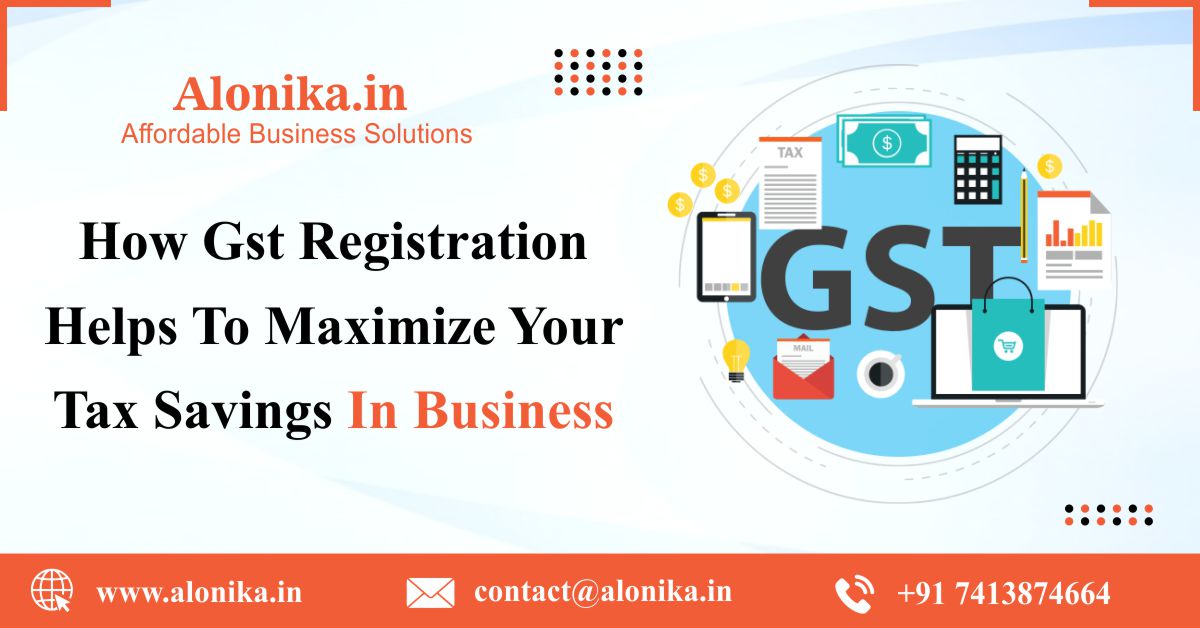Optimizing Tax Performance: Specialist Tips on Browsing the GST Registration Labyrinth for Small Organizations
Navigating the complex landscape of Item and Provider Tax (GST) registration can be a labyrinthine task for small companies intending to optimize their tax obligation efficiency. Understanding the eligibility standards, careful paperwork requirements, strategic timing factors to consider, and adept enrollment process tips can dramatically influence a business's financial standing. Compliance with GST guidelines is extremely important, and adhering to ideal practices can improve operations and avoid potential pitfalls. In this conversation, we will check out skilled understandings and workable suggestions that can encourage small businesses to navigate the GST enrollment maze efficiently and optimize their tax obligation efficiency.
Qualification Criteria
Qualification needs for Small company GST Enrollment incorporate specific criteria that companies must fulfill to abide by tax policies. To get approved for GST registration, a company should have a yearly turn over surpassing the threshold established by the tax authorities, which varies by nation. Additionally, companies included in inter-state supply of solutions or goods, or those marketing items online, might be called for to register for GST, irrespective of their turnover. It is crucial for companies to accurately identify their qualification based upon these turnover thresholds to prevent charges for non-compliance. Singapore GST Registration.

Paperwork Needs
The needed paperwork commonly consists of proof of organization registration or address, identity and unification proofs of the service owner, pictures, bank account information, and evidence of the major area of service. Additionally, businesses require to provide details of their organization tasks, including the items or solutions supplied.
Maintaining all necessary documents organized and readily obtainable can improve the enrollment procedure and aid companies abide with the needs effectively. Precise attention to detail and adherence to the documents guidelines are crucial for an effective GST enrollment process for small services.
Timing Factors To Consider
Taking into consideration the essential documents needs have actually been thoroughly attended to, the following important aspect for small companies starting the GST registration procedure is the calculated management of timing factors to consider. Timing plays a pivotal duty in GST enrollment, affecting not only compliance however also economic facets of the Go Here service. Local business require to thoroughly prepare the timing of their GST registration to optimize benefits and minimize potential dangers.

Additionally, organizations ought to straighten the timing of their GST enrollment with their functional preparedness. Adequate preparation, such as upgrading audit systems and training staff, is necessary to seamlessly incorporate GST needs into day-to-day procedures. By purposefully taking care of timing considerations, local business can navigate the GST registration process effectively and enhance their tax obligation performance.
Registration Refine Tips
Effectively browsing the GST registration process needs tiny businesses to carry out aggressive and critical registration procedure suggestions. This includes company enrollment files, proof of address, bank statements, and recognition evidence of the company proprietors.
Additionally, comprehending the limits and requirements for GST registration based on the certain state or area where the organization operates is vital. Some states have different turn over limits that activate mandatory enrollment, so being informed about these limits can aid services prepare ahead.
Another valuable pointer is to consider find here seeking professional assistance from accountants or tax consultants that specialize in GST enrollment. Their competence can streamline the procedure, minimize errors, and guarantee conformity with all regulations.
Conformity Best Practices
Tiny companies need to prioritize conformity to avoid fines and preserve an excellent standing with tax authorities. Little organization owners ought to frequently assess federal government guidelines and seek specialist advice if needed to ensure they are fulfilling all requirements. By integrating these conformity best methods into their operations, tiny companies can browse the intricacies of GST registration with self-confidence and performance.
Conclusion
To conclude, tiny organizations can i was reading this browse the GST registration maze by ensuring they meet eligibility requirements, gather called for documents, take into consideration timing effects, follow registration process suggestions, and follow conformity ideal techniques. By making the most of tax effectiveness with appropriate GST registration, companies can improve their monetary monitoring and procedures.
Navigating the elaborate landscape of Product and Services Tax (GST) enrollment can be a labyrinthine job for little companies aiming to maximize their tax obligation performance.Qualification demands for Small Business GST Registration incorporate specific standards that organizations need to satisfy to conform with tax obligation guidelines. The required documentation generally includes proof of company enrollment or unification, address and identity evidence of the service owner, pictures, bank account information, and proof of the major location of business. Furthermore, companies require to offer information of their company tasks, including the products or services supplied.Successfully navigating the GST enrollment process calls for small organizations to execute critical and positive enrollment process suggestions.